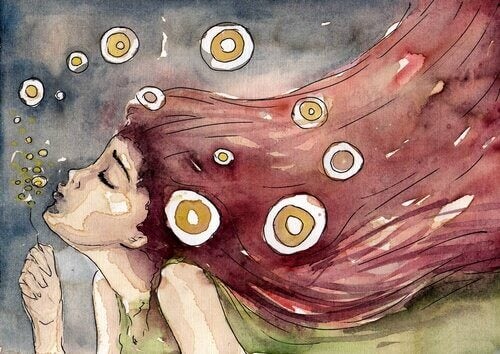We tend to want something better, expect something else, we believe that when we have a better job, when we move, when we travel more often or when we earn more at the end of the month, we will know what it’s like to be happy, but that’s not the case, if you’re not happy now, it probably won’t be when all this happens (if it happens) because those who don’t know how to take advantage of what they already have are doomed to be slaves to their ambition.
This reflection shows us a very common problem, both in people and in situations, we learn to be ambitious, to want something better, not to settle for what we are given and to always seek something greater, but what do we forget? That the goal is not the summit, that reaching the top is useless if we have not taken advantage of the landscapes on the way up, we forget that being happy is being now. Why the summit, the summit, for a very short time? time?
- “If you’re not satisfied with everything you’ve got.
- You won’t be satisfied with everything you’re missing either.
- -Erich Fromm-.
When I can visualize everything I lack from where I am now, but I’m doing it with energy all the way I’ve already traveled, through everything I’ve accomplished, to see what I’m going to do with will and enthusiasm, I’m approaching happiness. The one who’s neither up nor down is with us.
I’m not talking about conformism or limiting myself to my comfort zone, because it’s normal to want something better, but I’m going to take on the challenge with a big inspiring smile to increase everything I already have. full of what I have and desire even more, I will have managed to find the secret key to success, my success.
“Hope is not in the when, but in time. -Carlos Andreu-
In 1967, Australian psychologist Alan Richardson conducted an interesting experiment with which he highlighted the power of visualization, in the first phase of the research suggested that people who were part of his study’s exhibition try free throws, recording the number of baskets they made. Subsequently, he divided this group of people into three subgroups: the idea was to study the evolution of the launch technique over the next twenty days.
The first group spent twenty minutes a day on free throws, the second group did not practice and the third group did not practice either, but its members spent twenty minutes a day visualizing themselves in the process of fighting the balls.
Over time, Richardson reassessed the players’ skill and discovered that the first group had improved their free-throw performance by 24%, the second group had not improved at all, and the third group, whose members had practiced visualization, had improved by 23%. . .
Another experience of Daniel Gilbert, a professor at Harvard University, ensured that we could duplicate the situations that make us happy, in their experience, a group of people were invited to dinner for free in a good restaurant, everyone could choose the day of their life. Dinner. The people who postponed dinner the most were the ones who reported the most happiness as a result of the experience: not only did they enjoy the evening, but they also enjoyed thinking about how good they would feel at dinner.
What can we conclude after these experiments? The importance of a good image of ourselves or our projected experiences in the future, achieving goals, leveraging them, setting goals and overcoming challenges will lead our brains to make it easier to conquer these challenges.
It is not, as some theories claim, that if we want something stronger, we will be closer to achieving it, what brings us closer to the objective is to mentally repeat the procedure to get to the place we want. Athletes who do speed tests know this very well: during warm-up, mentally they repeat the output several times, they visualize it.
The fact that mental repetition may have effects similar to those of actual training is related to very particular neurons: mirror neurons.
We can spend our whole lives looking for happiness as someone looking for metals hidden in the sand of the beach or sifting the sand in search of gold nuggets, we can do that or try to find a balance in which our dreams are relevant. but also positive emotions. These emotions that emanate from the positive when we stop to look at what we have already achieved.
This balance will allow us to feel better in the present, but it will also allow us to face our aspirations differently. Wanting something better in our lives is normal, but we will see these goals as desirable, accessible and not essential. it will certainly motivate us in our progress, but it will mitigate the impact that setbacks can have. Can you think of anything that makes you happier?
“Happiness is like something that you are looking for and that when you have it, you do not notice it. It is retroactive, you realize later. You can find happiness everywhere, but you must know how to perceive, know that you already have that. ?-Stephane Brush –

